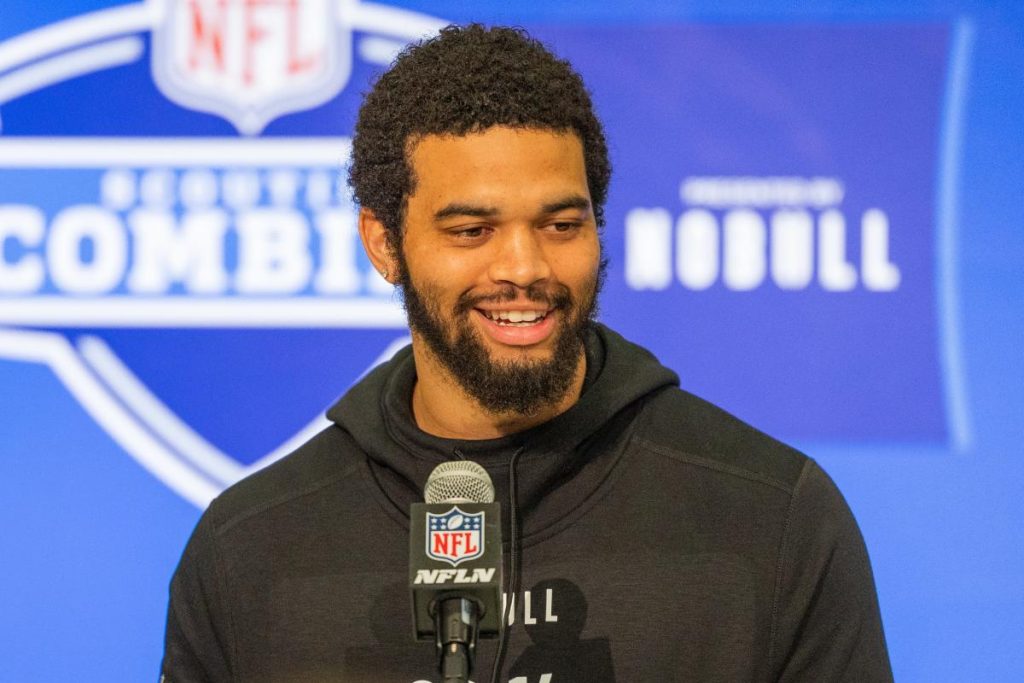Southern California quarterback Caleb Williams has been a highly touted prospect for the 2024 NFL Draft, with many considering him the consensus No. 1 overall pick. Despite his undeniable talent, Williams has faced doubt and criticism for his unique forms of expression, such as painting his nails and using a pink phone. Critics question whether someone who doesn’t conform to traditional masculine norms can lead an NFL team effectively.
Williams has been using his nails as a form of self-expression for years, even when he won the Heisman Trophy during the 2022-23 college football season. Despite backlash for painting controversial messages on his nails in the past, Williams continues to decorate his nails as a way to honor his mother, who works as a nail technician. The criticism he faces for his unconventional expression raises questions about the correlation between personal style and professional success in sports.
The way high-profile athletes express themselves, such as through fashion or body modifications, does not determine their ability to excel in their respective sports. Athletes like Ricky Williams and Dennis Rodman have been known for their unique forms of expression outside of traditional masculinity. Ricky Williams famously wore a wedding dress in a photoshoot, while Dennis Rodman sported face tattoos and piercings. Despite their unconventional styles, both athletes had successful careers in their respective sports.
Williams’ painted nails, which he uses to honor his mother, reflect his personal values and family connections. In the NFL, it is generally accepted that players should be free to express themselves in ways that are meaningful to them. Fashion trends and personal styles evolve over time, and what might be considered unconventional today could become mainstream in the future. Criticizing Williams for his expressive choices is not a valid reason to discount his talent and potential as an NFL quarterback.
While there may be valid football-related criticisms of Williams, such as his performance against top-tier competition or his decision-making on the field, attacking his personal expression is baseless and unfair. Comparisons to past athletes who defied traditional norms show that unconventional styles do not necessarily hinder an athlete’s ability to succeed. Criticizing Williams for his painted nails and pink phone reflects biases and narrow-mindedness, rather than a valid assessment of his capabilities as a quarterback.
Ultimately, focusing on non-football-related aspects of Caleb Williams’ identity, such as his painted nails, detracts from the larger conversation about his skills and potential in the NFL. As a highly touted prospect, Williams should be evaluated based on his on-field performance and football-related attributes, rather than his personal expression or fashion choices. Embracing diversity and individuality in sports can lead to a more inclusive and accepting environment for athletes to express themselves authentically.












